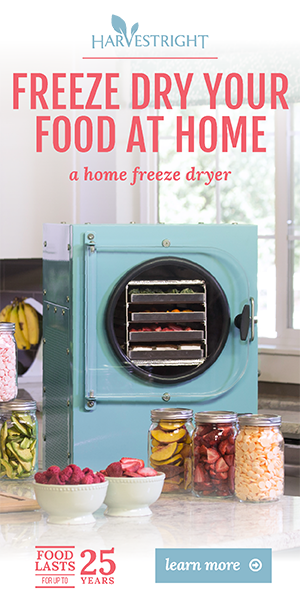Stocking a Retreat with Food & Supplies
When the "shit-hit's-the-fan" (or SHTF) it's good to be ready with a stockpile of what you'll need to get through whatever happens. With our economy tanking, rioting in Europe, natural disasters everywhere and our money in free fall you can't be too prepared. This site provides links to a plethora of suppliers that have just what you need. When "shit" happens, it is important that you are able to retrieve important documents and have the basics of food, water, shelter. Should a disaster happen (personal or worldwide) you will have shortages of certain items. What you store, and how you store it can make all the difference in the world. A few essentials are needed for survival - you'll want more than this if you hope to have a modicum of comfort.
Water: Store at least three to seven days of drinking water. A good rule of thumb is at least a gallon a day for each person or pet.
Food: The best way to store food is to store items you use every day. A small cache of freeze-dried or light weight foods is good if you live somewhere that may require relocation, but generally if you plan to stay - stockpile foods your family is used to and will eat. When you are under stress, that's NOT the time to try to get a picky eater to eat foods they normally never see. Don't forget pets - they need to eat too.
First Aid: Having a complete first aid kit is imperative. Should you get sick or your kids get sick, this will become the most important item that you have stored. It's also important to have basic instruction on how to use the items you have stockpiled. Make sure you have enough of everything and more than you'll think you need. Band-aids and antibiotic creams are not enough. We recommend the kit on this page. If anyone in your group has heart problems, the LIFEPAK 15 Defibrillator/Monitor may be lifesaving if EMS service is unavailable
Light: Keep flashlights with fresh batteries on hand in the event that power has been cut. You'll need them for safety as well as to see where you're going. The best kinds of flash lights are ones that do not use battery power. Crank lights, chemical glow sticks and rechargeable flashlights will assure you have light when you need it.
Radio: A battery-powered or emergency hand crank radio is important to receive broadcast information from emergency agencies in your area. Even if it's just a power outage, it's reassuring to know others are without power and they are working to restore it. You'll only know this with a connection to the outside world.
Medications:Prescription medications should be easily accessible so if need be, you can find them in the rubble after a tornado or earthquake. Try and stock a supply of medications on hand that can be used if there is no pharmacy available.
Money & Documents: While cash may become nothing more than paper in the coming days, you'll need a little on hand in case you need to make a quick dash to the store for last minute supplies. Do not depend on electrically operated devices and carts such as ATM's and Debit Cards to be operational after a disaster strikes. When communications go down debit and credit cards will be nothing but pieces of plastic.You will need an emergency cash supply, in small denominations, located in an easily accessed storage place in your home. You may also want to have silver and gold coins should cash become worthless. Also, forget safe deposit boxes - important documents such as deeds, titles, insurance policies, and medical records need to be where you can get them. A run on the banks may cause them to be closed and your documents inaccessible.
Clothing and sturdy footwear: Survival during disaster will depend on your ability to stay warm and dry. Clothing and footwear that will endure long walks and manual labor are important. You'll need a good pair of boots and some work gloves, minimally.
Tools: Most people these days do not have many tools surprisingly. Young adults today have depended too much on paying others to fix and repair things that become broken. In a SHTF situation, tools will be needed for constructing shelter, repairing broken equipment, putting out a fire, or calling attention to yourself should you become trapped. At minimum have an adjustable pipe wrench, a fire extinguisher, an ax, a shovel, sawzall and small toolkit with hammer, screwdrivers, crowbar. Without good tools, you can do nothing.
Sanitation and hygiene supplies: Toilet paper, personal hygiene items, and disinfectants will be needed to maintain cleanliness, protect your health, and maintain a good level of morale in the aftermath of disaster. Always have a gallon of bleach (for disinfecting and water purification) on hand and hand sanitizer.If you would like to expand this list to include a few creature comforts, better food and additional good advice, consider our advertisers.




























